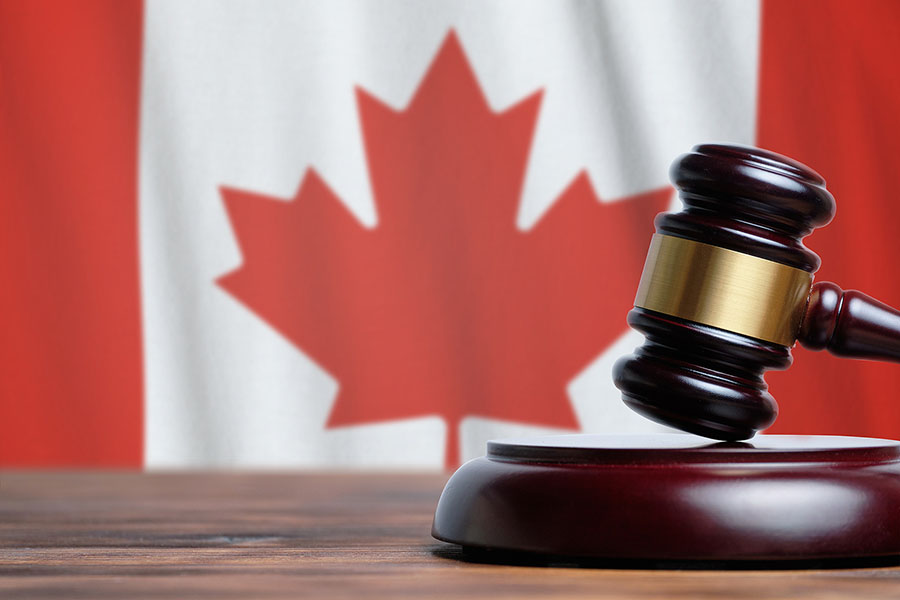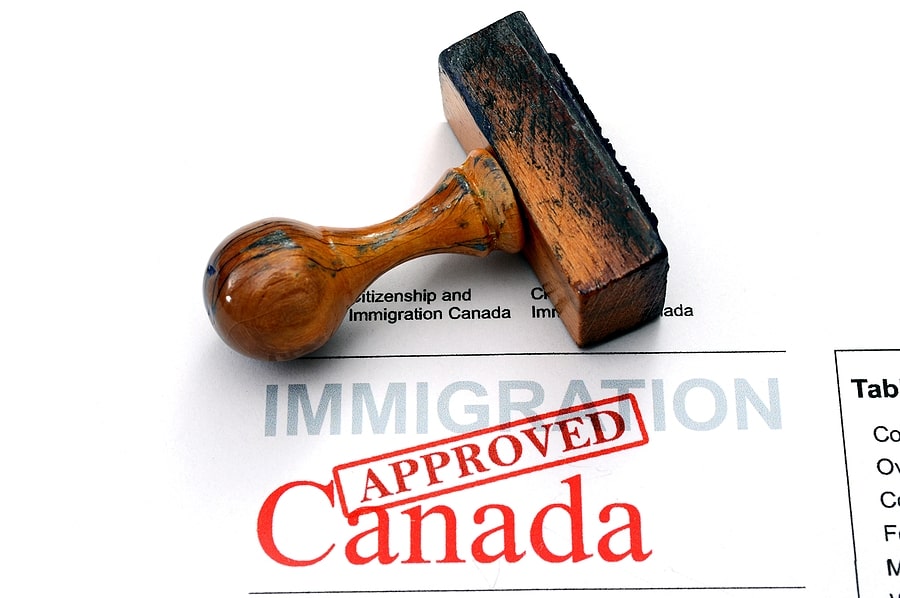
- What is the Immigration Appeal Division (IAD)?
- What Sorts of Matters Get Appealed to the IAD?
- How Does the Immigration Appeal Division Process Work?
What is the Immigration Appeal Division (IAD)?
The Immigration Appeal Division is a part of the Immigration and Refugee Board (IRB), and is responsible for hearing immigration appeals. This IRB is an independent board, which means that they are not part of Canada’s immigration department. The IAD’s sole purpose is to hear an appeal and make decisions based on the evidence presented and in accordance with the law.
Depending upon the nature of your appeal, the respondent (the party opposing your appeal) will either be the Minister of Citizenship and Immigration or the Minister of Public Safety. It is always strongly recommended that you have a lawyer for matters before the IAD. Appeals can be complicated, a hearing can be overwhelming, and the other side is always well represented, so it is a good idea to make sure you are as well. It is always best to ensure that all your evidence is presented properly to give you the best possible chance of winning your appeal and retaining your rights in Canada.
Generally speaking, you have 30 days to start an appeal after receiving the decision you intend to appeal.
What Sorts of Matters Get Appealed to the IAD?
This appeals process is available for a number of immigration matters. Some examples of matters you may appeal include:
- Sponsorship Appeal (pursuant to s. 63(1) of the IRPA): If you sponsored a family member, such as a spouse or a parent, from overseas, for permanent residence, and that application was denied, you have the right to appeal this refusal to the Immigration Appeal Division. In this appeal, you will have the opportunity to explain why the visa application should be accepted and attempt to explain any concerns that the refusing officer may have had with your application. In most cases, you can appeal overseas sponsorship refusals, but such appeals are not allowed if the person you are seeking to sponsor is inadmissible to Canada for serious criminality, organized crime, security reasons, violations of human rights, or misrepresentation.
- Removal order appeal (pursuant to s. 63(2) and (3) of the IRPA): If you have received a removal order to leave Canada, you may be eligible to appeal that order, and explain to the Immigration Appeal Division why you deserve to stay in Canada. In order to be eligible for this type of appeal, you must either be a permanent resident of Canada, a foreign national with a permanent resident visa, or a convention refugee. You will not be eligible to appeal if you have been found inadmissible to Canada due for serious criminality, organized crime, security grounds, or breaching human rights violations.
- Residency obligation appeal (pursuant to s. 63(4) of the IRPA): When you become a Canadian permanent resident, you take upon yourself an obligation to be present in Canada for at least 730 days out of every 5 years. If you are however outside of Canada for longer than that period of time and are seeking to re-enter Canada, a visa officer or CBSA officer at the Port of Entry, may find that you did not meet your residency obligation. This could lead to you actually losing your permanent residence. If this is the case, you have a right to appeal this decision to the IAD to explain why you should keep your permanent residence.

How Does the Immigration Appeal Division Process Work?
Filing a Notice of Appeal
Within 30 days after receiving either a refusal decision on a sponsorship application, decision that you have breached your residency obligation, or removal order, you must file a Notice of Appeal to the IAD. This will preserve your rights to pursue your appeal.
Receiving a hearing date
After you have started your appeal, you will receive a hearing date from the IAD. If you are represented by a lawyer, that lawyer will be given notice of the hearing, and together, you will work to prepare for your hearing.
IAD hearings are de novo hearings. That means that you can introduce as much evidence as you like, and start your story from scratch. Depending on what you are appealing, you are going to want to demonstrate to the decision-maker (the “Member”) why you deserve to have the appeal granted.
Witness and evidence preparation
With your lawyer, you will prepare a list of witnesses, you will prepare the evidence you wish to present at the hearing, and you will prepare for your own testimony to be given at the hearing. The Respondent to the hearing will be Minister’s Counsel, who will act as opposing counsel.
The day of the hearing
On the day of the hearing, you will be present with your lawyer and whomever you have indicated will be your witnesses. If your witnesses are overseas, then you will need to let them know to be ready and prepared to testify by phone at some point during the day.
Typically, the Member and counsel will address any technical matters at the beginning of the hearing. After that, your lawyer will begin an examination-in-chief of you as the applicant, taking you through your story, to introduce any evidence that you wish to have before the panel. When your lawyer’s examination of you is complete, Minister’s Counsel will have an opportunity to cross-examine you on your evidence and your answers, and go through some of their own questions. When they are complete, your lawyer will be able to ask a few more questions.
After your examination is complete, your lawyer will have the opportunity to call any other witnesses you wish to have address the issues in the appeal. This may include your spouse, children, parents, or other family members, or those who are knowledgeable about the issues before the IAD.
At the end of the witness testimony, counsel will have an opportunity to make closing submissions, summarizing the relevant law, any relevant policies or regulations, and also summarizing the pertinent evidence that is before the IAD.
When the hearing is complete, the Member may decide to issue a decision immediately, or will take some time to render a decision before informing you by mail.
Important:
Each appeal is different, and each depends on a discrete legal test that you must prove in order to be successful. It is important to keep your hearing tight, to only put forward evidence that is relevant to your matter, and to make sure that you are well prepared to answer any questions that may come your way. For this reason, it is incredibly important to have an experienced lawyer who can assist you for the purpose of pursuing your appeal. This is often your last chance to hold onto your permanent residence before having it revoked, which could have long-term consequences on your future. For this reason, making sure you are leading with your best foot forward, and with our immigration lawyer who is willing to fight for you with everything they have, is incredibly important. It is worth the money and the time to have a representative working with you for these types of hearings.
Frequently Asked Questions
How long does an immigration appeal division appeal hearing typically take?
In most cases, it does not take more than a day to go through all the necessary information and evidence to hear a case. There is enough time in a full day hearing to get all the pertinent evidence on the record, and for the Member to be in a position to make an informed decision. However, in some cases, more than a day will be required. If so, at the end of the day, counsel will work with the Member to find another date to continue your hearing.
It is important to note that if your testimony has not concluded before the end of the day, that you are still under oath, and you should not discuss the content of the hearing or your testimony, with any of the other witnesses until the hearing is complete.
If I file a Notice of Appeal, does this mean that I am guaranteed to have an appeal hearing?
No, it doesn’t. After you file a Notice of Appeal, the IAD will review your matter, and make sure that they actually have the jurisdiction to hear your appeal. This will depend on a number of factors depending on the type of decision you are appealing, but will often take into consideration whether you are inadmissible for serious criminality, whether a spousal sponsorship application is indeed for a member of the family class, or other reasons. Once the IAD issues a Notice to Appear at a hearing, giving your hearing a time and date, it will then be clear that they will actually consider your appeal.
Is there any chance of my appeal being settled early before a hearing takes place?
Yes, there actually is. After you commence your appeal, the IAD may call for an alternative dispute resolution (ADR), if it believes that there is a chance that your appeal could be resolved without an oral hearing. Given the backlog of hearings and the resources required for each matter, it makes sense to try and resolve those matters early on if there is no need for oral evidence to be adduced. This will be an informal meeting with the Minister’s Counsel, and an Early Resolution Officer (ERO) from the IAD, who will be neutral, and who will try to facilitate the ADR. You and your lawyer should both attend this meeting, and if successful, it will result in your appeal being granted, disposing of the need for a full hearing.


